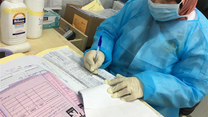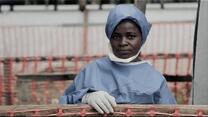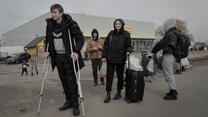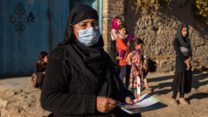After a year of the COVID-19 pandemic, it is clear that no one is safe until everyone is safe. As new virus strains spread across borders, COVID-19 responses must be designed to protect all people regardless of nationality or legal status. For refugees and displaced populations the pre-existing challenges of being excluded from essential public services, social protection systems, economic opportunities and financial services have only magnified since the beginning of the pandemic. The World Bank has demonstrated a robust commitment to supporting refugees and refugee-hosting countries, and the Bank’s resources, credibility and expertise in advancing refugee inclusion should be applied to the pandemic response.
The most effective and sustainable solution to ensuring that no one is left behind in this pandemic is to include displaced populations in national responses, especially social protection systems. To identify where refugee inclusion in COVID-19 plans has already been successful and where it requires improvement, the IRC conducted a review of publicly available World Bank COVID-19 relief country plans and projects. Results of the review indicate that the World Bank’s inclusion of refugees and displaced populations has been uneven.
This policy brief offers ways the World Bank can standardize refugee inclusion across COVID-19 responses and continue to leverage financing for more inclusive national policies. The brief features case studies on Chad, Jordan, and Pakistan to spotlight different levels of inclusion across World Bank-funded COVID-19 response plans.



